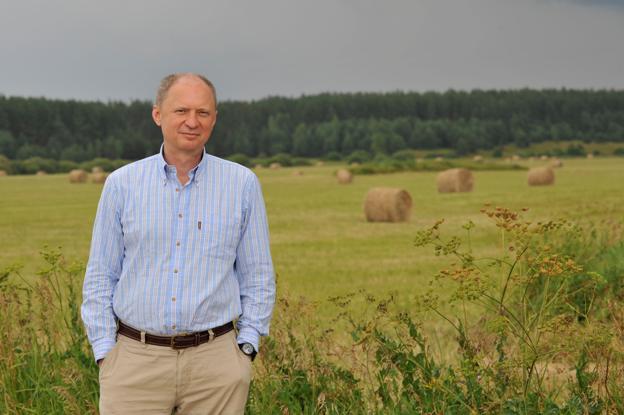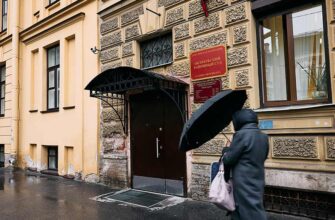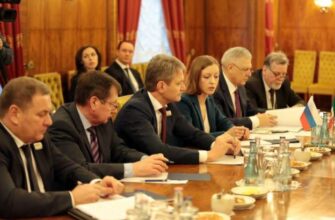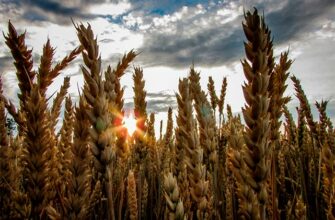The hero of this article – Alexander Brodowski, is well – known in Moscow among lovers of quality country products. For over 10 years this man indulges gourmands of the capital for its meat products and delicacies produced in Gorchichnaya Polyana estate (Tula region, “Tula hunter” in the village named after Leo Tolstoy). He founded the first in Russia organic farm, having a certificate of the European Union.
It all started with the fact that the graduate of journalist faculty of Moscow State University, specialist on contemporary art and co-owner of a clothing supplier WoolStreet decided to engage in organic farming and animal husbandry, guided by the latest European technology. First, a model was trendy Western ideas – permaculture as the use of natural methods elaborated by Austrian farmer Josef “Sepp” Holzer, which are traditional and innovative at the same time. Then Brosowski got closer to Russian soil, and found the path obviously unique.
Read more about this journey, read interview with Alexander Brodowsky magazine “E-Vesti”:
E-Vesti: You are a believer and chose the estate of Leo Tolstoy, who was unusual in relationship to the Orthodoxy writer, excommunicated and anathematized. Why you chose him?
Brodowski A.: Despite the fact that I am a believer, I’m a fan of Tolstoy, I especially like his “War and peace”. Although I wrote my thesis on Dostoevsky…
Actually, I chose only the land plot, which I liked. It turned out that the deserted village (where lived two families only) for some reason is called “the village of Leo Tolstoy.” We find out what is the story.
There are two versions. One is a settlement, “Tolstoyans” (adherents of the philosophical views of L. Tolstoy, which formed colonies to implement ideas– approx.ed.) beginning XX century. And the second story is that there in 1930е average-rich people were exiled here. They had 1-2 months to build the house, wood on clay. In the best of times a population here counted 72 people.
EV: Do you regret that you engaged in farming?
Brodowski A.: No, on the contrary, so many things experienced during this time.
Furthermore, my core business was all done without me. The enterprise was so great that my experience turned not enough to lead it. When we got so many shops that I didn’t know by name its Directors, I began to lose interest in what is happening, and I realized that this is not mine. Apparently I’m more suited for startups.
Although a startup called “Gorchichnaya Polyana” lasts for 10 years. In Woolstreet my companion was Julia Khmelnytska, on the farm I have no companions, I am the only one, it is a very mobilizing factor. Because there is a struggle with people, with nature, with theft, with indifference. A few years ago there was a topic with officials who almost destroyed the farm, so we can say that we are reborn from the ashes.
EV: Your pork destiny is awful, the product was awesome. But, on the other hand, You produce today other wonderful products: eggs, lamb, beef, dairy products…
Brodowski A.: Yes, but all the equipment and investment were focused on breeding of pigs. And suddenly everything stopped. Of course, this is nonsense and phantasmagoria. However, agriculture is a niche where you can rebuild. Of course, the profit is out of imagination.
EV: Your family eats your product from “Gorchichnaya Polyana?”
Brodowski A.: Yes. However, now we have fasting, we keep all the fastings, as well as recommended Wednesday and Friday. We love meat and eat it, but do it in a limited time. Now we are waiting for Christmas.
EV: Can we say that the range is determined by your tastes?
Brodowski A.: No. First of all, it is determined by the people. There are problems, because they usually chose the main pieces, and the rest of the cow, except those pieces that go to sausages, we have nowhere to sell, there is a bias. Until we recycle all of our cow, we can’t talk of the profitability. Now it is the main problem for us.
EV: It amazes me that people prefer the sirloin or some other similar pieces. But the traditional Russian kitchen preparing everything. Maybe people should be given the recipes for all of this?
Brodowski A.: Yes, of course. My favorite dish is Tafelspitz. This is Imperial dish that I tried in Germany. This means the piece of meat on the bone (rump) and it is cooked with greens for a long time.
Beef in Russia is not very accepted. It is basically known as a piece of meat in the soup. To make sausage from beef only is impossible, and nobody in the world does it, because it’s expensive, and technologically the meat does not have enough fat. So, everything in Russia which is called “beef”, contains 20% of pork.
And we have nothing but a cow, so what? A lot of this is not done, we tried to spend some analogues of our “pig era”, for example, our liver sausage – it is amazing, unique for Europe.
We now drove it to a meeting with Karl Ludwig Schweisfurth, where he had met with eight farmers. He gathered his disciples and decided to acquaint us. Mostly there were German farmers, also one from Denmark, a former banker. They were very surprised that the beef can do such things. Apparently, they have no such need, but we have it. Now we understand that we can make a sausage out of anything.
As for my personal tastes, I resented the pastrami. This project I lobbied personally. It was awful. But our new product is a winning of this year. For our women engaged in meat processing, it was an absolute gastronomic shock. It was hard, but it was very cool. At least now people will buy it in full. Chaman we import from Yerevan, it is a necessary component that can not be found here. And everything else is ours.
To create burgers we were encouraged by our best chef Vladimir Mukhin (the restaurant “White rabbit”). And when I showed him what happened, he wondered how after freezing the meat can be so juicy. The Burger is fried for three minutes. This is a very interesting offer for restaurants, because it solves a logistical problem.
EV: You are guided by Western farm experience, or adhere to local methods?
Brodowski A.: I used the exercise method for pigs, which is considered a Western invention. Although I was told that in 1960 years we had widely practiced grazing of pigs, and we did not know the other way. It is being touted as the latest breakthrough. Before there was a lot of common sense and simple solutions. Now no one understands anything.
I imported breeding cattle. But then our attention was concentrated on pigs, and we missed the moment when it was possible to obtain the status of the reproducer. Now we’re making up for it and look forward to the status of the reproducer in 1.5 years, it will help in obtaining subsidies. Although we have planning, and breeding, but until now it is obscure feeling that we sell only in Moscow and Muscovites. There is a certain negativity on the part of local officials, although I grew up in the Tula region and the first four years are actually spent in Yasnaya Polyana.
As for science, we already have for two years a remarkable woman-livestock specialist, candidate of agricultural Sciences, who graduated from the graduate school of Timiryazev in the days of the Soviet Union. We are very pleased, before during a few years there was no animal specialist.
EV: You use the labor of foreigners?
Brodowski A.: At first I was trying to bring the Germans in order to ask them to do something here, but they very quickly got themselves in disaster. About the trip of one of the Germans, which spent here a year, Second channel of German television even made very popular in Germany film. “German period” I lasted for three years. I think the Germans even in XIX century had difficulties in a Russian village, but now it is unbearable for them.
When we built, we had the whole “friendship of peoples”. Cellars and lake did the Armenians, there were a lot of Uzbeks, Ukrainians, Moldavians. But that was long ago. The last five years we employ only the Russians.
EV: We can have a profitable organic production in Russia?
Brodowski A.: Global demand for organic products is growing, and Europe sees a big problem with land and facilities, and production is shrinking. Therefore, Europe fears that Russia will take it seriously and it will inevitably happen. So, if now one of our agricultural group changed his mind, and at least for the sake of interest one of the units will be transfered on the rails of the bio, it will be the beginning of a very big movement. In Europe bioferment is dying, and organic food is not quite what it used to be.





